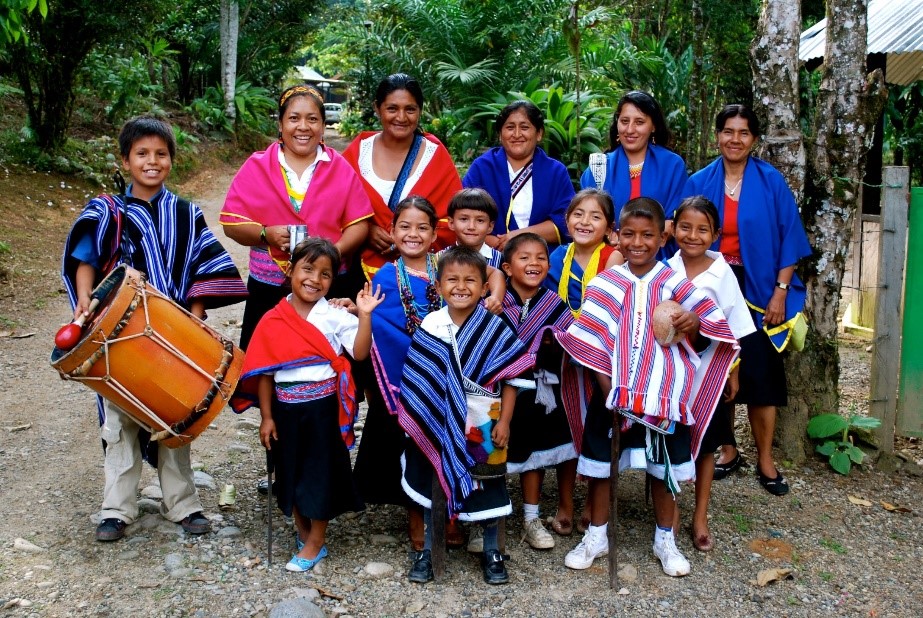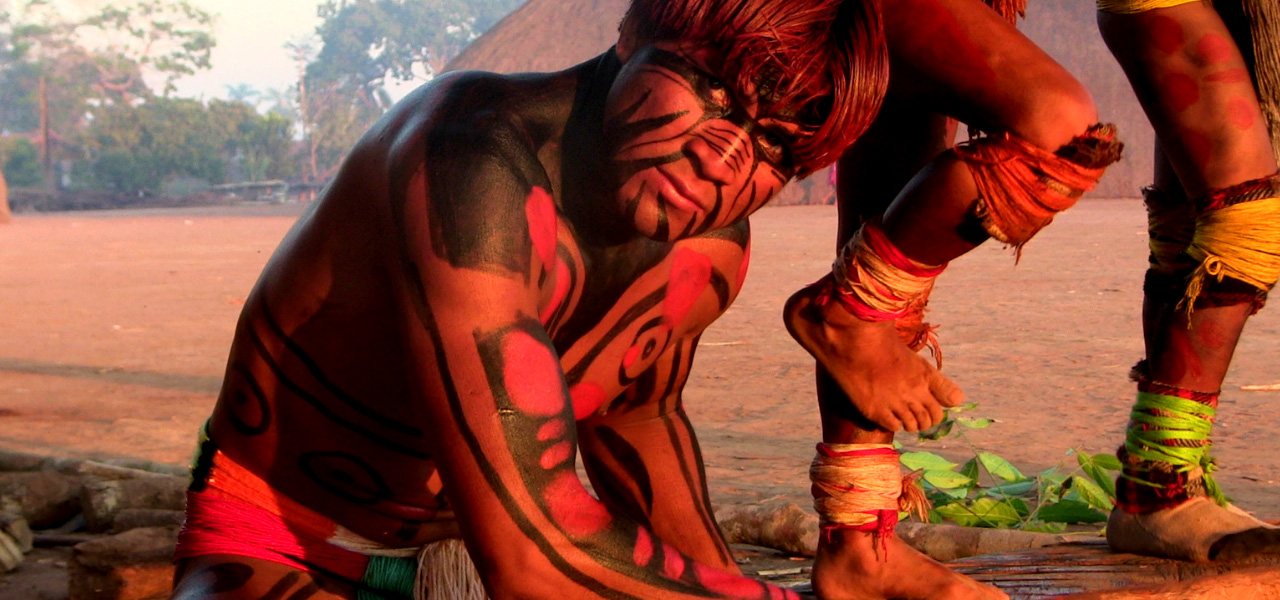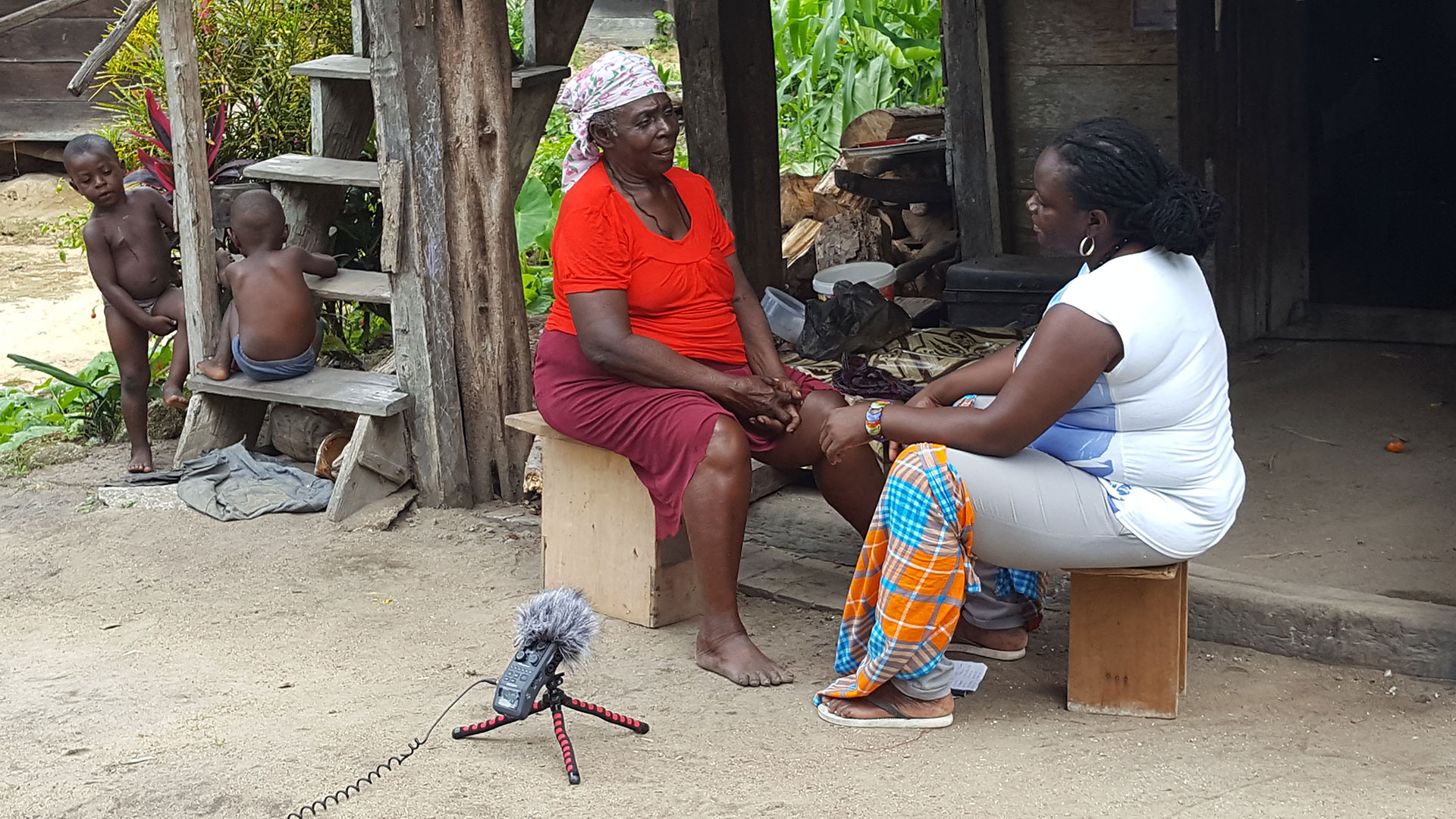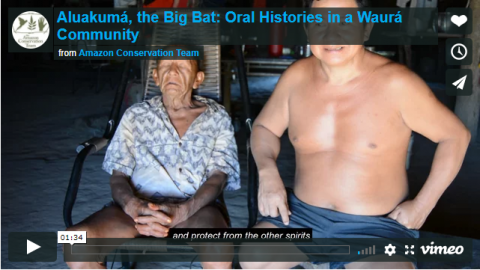Posts Tagged ‘traditional knowledge’
Indigenous Women Achieve “Mamakunapa” Civil Society Nature Reserve
On December 2, 2020, a species-rich stand of Andes-Amazon rainforest stewarded by indigenous women of ASOMI achieved legal designation as a Civil Society Nature Reserve, “Mamakunapa”.
Read MoreCollective Empowerment in the Yunguillo Reserve of Colombia’s Inga People
In memory of the three youth of the Yunguillo reserve murdered in September 2018. ACT works with the Inga indigenous people of theYunguillo Reserve, located at the confluence of the Andes mountain range and the Amazon river basin in Colombia, a territory of great importance due to the ecological and ecosystemic characteristics of its forests,…
Read MoreSolar Solutions for Traditional Communities
For remote forest communities, steady sources of renewable power can improve air quality, minimize tree harvesting, and provide domestic lighting for the evening work, especially important for children’s studies. In the Waura village of Ulupuene, which is situated along the banks of the Batovi River within the confines of the Xingu Indigenous Territory in Brazil,…
Read MoreStorytelling empowers indigenous people to conserve their environments
Indigenous storytelling is a powerful tool for preserving biocultural diversity, says Álvaro Fernández-Llamazares, an environmental researcher at the University of Helsinki in Finland. Having heard stories in Bolivia, Costa Rica, Kenya and Madagascar, he has now proposed that storytelling could transform how conservationists work with native peoples. The Amazon Conservation Team (ACT) embodies this philosophy. ACT partners with South American indigenous communities to preserve rainforests and traditional culture.
Read MoreAluakumá, the Big Bat: Oral Histories in a Waurá Community
Oral Histories in a Waurá Community: In the village of Ulupuene, which partners with ACT, two elders and community leaders passed away: the regional “keeper of songs and dances,” Yakuana, who took with him a vast wealth of knowledge about Waurá cultural practices; and most recently, Aluakumá (“Big Bat”), a village elder, shaman, and healer. Both men were revered, and their kin expressed that they had lost more than just a loved one—they had lost an unrecoverable repository of cultural knowledge.
Read More





